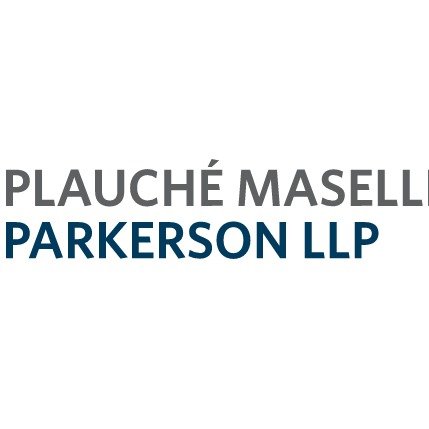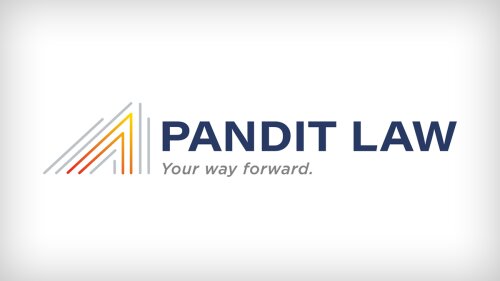Best Property Insurance Lawyers in New Orleans
Share your needs with us, get contacted by law firms.
Free. Takes 2 min.
List of the best lawyers in New Orleans, United States
About Property Insurance Law in New Orleans, United States
Property insurance is a crucial aspect for homeowners and businesses in New Orleans, a city known for its vibrant culture but also its susceptibility to natural disasters, particularly hurricanes. Property insurance provides financial protection against damage to property, which might include homes, businesses, and personal belongings. In New Orleans, property insurance can safeguard against natural calamities, theft, vandalism, and more. It is governed by state laws and regulations aimed at ensuring fair practices and providing consumers with necessary protections.
Why You May Need a Lawyer
There are various reasons one might need a lawyer when dealing with property insurance in New Orleans:
- Disputed Claims: If your insurance claim is denied or the payout is less than expected.
- Policy Interpretation: Assistance in understanding the complex language of insurance policies.
- Bad Faith Claims: When an insurer fails to honor their commitments, a lawyer can help challenge such conduct.
- Natural Disasters: In cases of extensive property damage due to hurricanes, professional legal advice might be necessary.
- Negotiating Settlements: Ensuring that you receive fair compensation under your policy.
Local Laws Overview
New Orleans, situated in Louisiana, follows state-specific insurance regulations that influence property insurance:
- Louisiana Insurance Code: This code includes all regulations and rules governing property insurance providers and policies within the state.
- Hurricane Damage Policies: Special emphasis is placed on hurricane coverage due to the region's vulnerability to such disasters.
- Claims Handling Practices: Regulations are in place to ensure fair and prompt handling of claims by insurers.
- Consumer Protection Laws: These laws protect policyholders from unfair practices by insurance companies, including mechanisms to dispute claims.
Frequently Asked Questions
What types of property insurance coverage are available in New Orleans?
Homeowners can choose from various policies, including standard homeowner's insurance, flood insurance, and windstorm insurance. Businesses can opt for commercial property insurance.
Is flood insurance mandatory in New Orleans?
While not always mandatory, flood insurance is highly recommended due to New Orleans' low-lying geography and history of flooding events. Certain areas may require it by mortgage lenders.
How does hurricane insurance affect property insurance premiums?
Properties in hurricane-prone areas like New Orleans often face higher insurance premiums to reflect the increased risk of damage.
What should I do if my property insurance claim is denied?
If your claim is denied, consult your policy documents to understand the reason, and consider contacting a lawyer if you believe the denial was unjustified.
Can I negotiate my property insurance settlement?
Yes, policyholders can negotiate settlements. Having legal guidance can strengthen your position and ensure you receive a fair payout.
How quickly must an insurer process a property damage claim in Louisiana?
Louisiana law typically requires insurers to acknowledge receipt of claims within 14 days and issue a decision within 30 days or provide a reasonable explanation for any delay.
Does homeowners insurance cover all natural disasters?
Not all natural disasters are covered under standard policies. Separate policies may be required for risks such as floods and earthquakes, which are common in certain parts of Louisiana.
What is an insurance adjuster?
An insurance adjuster is a professional who assesses damage and determines the insurer's liability. They can be employed by the insurance company or work as independent contractors.
How can I dispute a claim settlement offer?
You can begin by communicating with the insurance company and, if necessary, seek independent appraisal or legal counsel to challenge the settlement offer.
What is 'bad faith' in the context of property insurance?
'Bad faith' refers to an insurer's attempt to avoid their obligations to policyholders through improper conduct. This can include unreasonable denial of a claim or failure to communicate promptly.
Additional Resources
Here are some resources that may be helpful for those seeking more information on property insurance:
- Louisiana Department of Insurance: Provides consumer resources, guides, and complaint services.
- National Flood Insurance Program (NFIP): Offers information specific to flood insurance in high-risk areas such as New Orleans.
- Local Legal Aid Organizations: These organizations can offer free or low-cost legal assistance for those needing help with insurance claims.
- American Bar Association's Lawyer Referral Directory: A useful tool for finding qualified lawyers specializing in property insurance law.
Next Steps
If you find yourself in need of legal assistance for a property insurance issue in New Orleans, consider the following steps:
- Gather all relevant documents, including your insurance policy, correspondence from your insurer, and any evidence related to your claim.
- Contact a local attorney specializing in property insurance law for a consultation.
- Review your legal options, including the potential for negotiation, mediation, or litigation.
- Determine if community resources, such as legal aid organizations, can assist you in your case.
Having a knowledgeable and experienced attorney can significantly impact the outcome of your property insurance disputes. Take the time to find the right legal support to guide you through this complex process.
Lawzana helps you find the best lawyers and law firms in New Orleans through a curated and pre-screened list of qualified legal professionals. Our platform offers rankings and detailed profiles of attorneys and law firms, allowing you to compare based on practice areas, including Property Insurance, experience, and client feedback.
Each profile includes a description of the firm's areas of practice, client reviews, team members and partners, year of establishment, spoken languages, office locations, contact information, social media presence, and any published articles or resources. Most firms on our platform speak English and are experienced in both local and international legal matters.
Get a quote from top-rated law firms in New Orleans, United States — quickly, securely, and without unnecessary hassle.
Disclaimer:
The information provided on this page is for general informational purposes only and does not constitute legal advice. While we strive to ensure the accuracy and relevance of the content, legal information may change over time, and interpretations of the law can vary. You should always consult with a qualified legal professional for advice specific to your situation.
We disclaim all liability for actions taken or not taken based on the content of this page. If you believe any information is incorrect or outdated, please contact us, and we will review and update it where appropriate.










